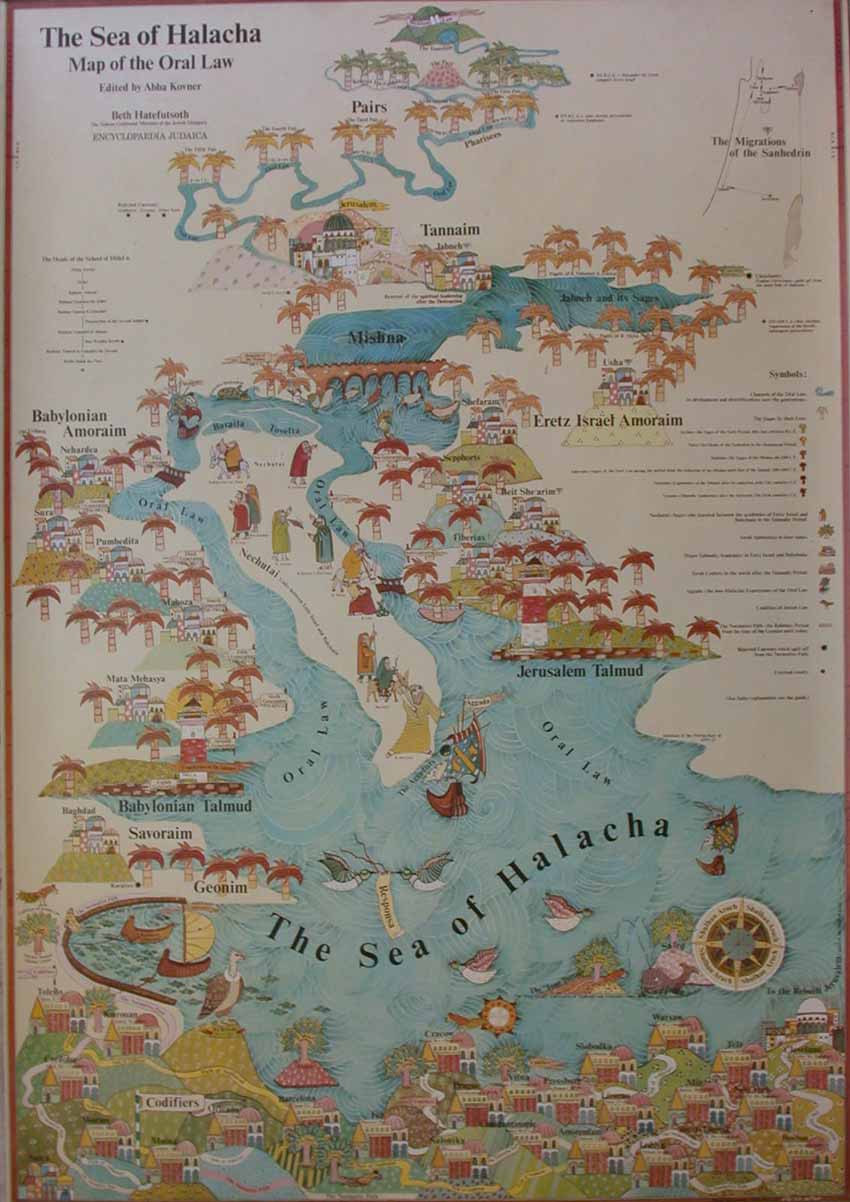אבוה דשמואל ולוי כי הוו בעו למיפק לאורחא הוו מקדמי ומצלי וכי הוה מטי זמן ק"ש קרו כמאן כי האי תנא דתניא השכים לצאת לדרך מביאין לו שופר ותוקע לולב ומנענע מגילה וקורא בה וכשיגיע זמן ק"ש קורא השכים לישב בקרון או בספינה מתפלל וכשיגיע זמן ק"ש קורא רשב"א אומר בין כך ובין כך קורא ק"ש ומתפלל כדי שיסמוך גאולה לתפלה במאי קמיפלגי מר סבר תפלה מעומד עדיף ומר סבר מסמך גאולה לתפלה
When Shmuel’s father and Levi wanted to set out on a journey in the morning, they would pray early before sunrise. When, during their journey, the time to recite Shema would arrive, they recited it. The Gemara asks: In accordance with whose opinion did they do this? In accordance with this tanna, as it was taught in the Tosefta: One who rose early to set out on his path before the time to recite Shema arrives, they bring him a shofar and he sounds it, if it was Rosh HaShana; a lulav and he takes it on Sukkot; a megilla, the Scroll of Esther, and he reads it on Purim; and when the time comes to recite Shema, he recites it. So too, one who rose early to sit in a wagon or in a boat prays, and when the time comes to recite Shema, he recites it. Rabbi Shimon ben Elazar, says: In either case, it is preferable to recite Shema and then pray the Amida prayer in the wagon so that he will juxtapose redemption and prayer. The Gemara explains: Regarding what do they disagree? The Gemara answers: This Sage, the first tanna, holds that prayer while standing is preferable. Therefore, one should pray earlier, at home, while standing. This Sage, Rabbi Shimon ben Elazar, holds that the juxtaposition of redemption and prayer is preferable, even if in doing so one is unable to stand while praying.



